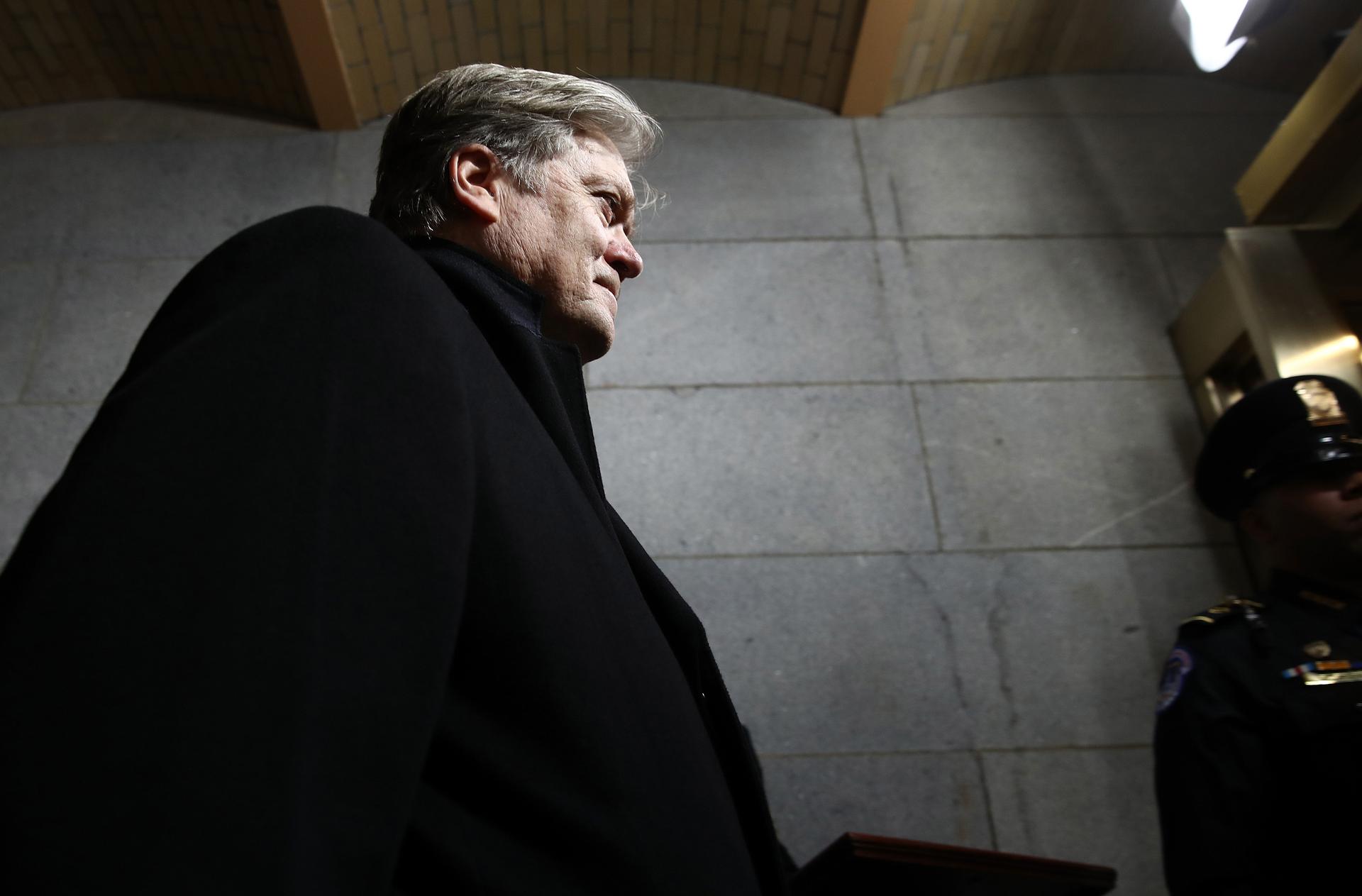Bannon out as chief strategist
Senior Counselor to the President Steve Bannon arrives before the presidential inauguration on the West Front of the US Capitol in Washington, D.C., January 20, 2017.
President Donald Trump on Friday finally parted ways with controversial far-right chief strategist Steve Bannon, after weeks of speculation and as the administration reels from the fallout over Trump's response to a violent white supremacist rally.
Seen as the driving force behind Trump's nationalist-populist agenda — making him a hero of the so-called "alt right" and a bete noire for centrists — Bannon's presence at the White House has been contested from the start.
He was the latest in a series of high-profile casualties in Trump's inner circle, including press secretary Sean Spicer, chief of staff Reince Priebus and communications director Anthony Scaramucci.
With Trump under fire from all sides for insisting anti-racism protesters were equally to blame for violence stemming from a weekend rally staged by neo-Nazis and white supremacists in Charlottesville, Virginia, the president faced renewed pressure to let go of his firebrand aide.
In announcing the 63-year-old Bannon's departure, the White House did not specify whether he had resigned or — as was widely reported — was forced out.
"White House Chief of Staff John Kelly and Steve Bannon have mutually agreed today would be Steve's last day," Trump's press secretary Sarah Sanders said in a statement. "We are grateful for his service and wish him the best."
From Goldman to Breitbart to West Wing
Labelled a white supremacist by his critics, the one-time Goldman Sachs investment banker and former head of ultra conservative outlet Breitbart News joined the Trump campaign less than three months before the Nov. 2016 vote and was credited with playing a major role in the real estate magnate's upset victory over Hillary Clinton.
Having privately boasted about handpicking Trump's cabinet, he went on to become the nucleus of one of several competing power centers in what has been a chaotic West Wing.
But Bannon reportedly fell into disfavor for allegedly leaking stories about White House colleagues who he felt did not sufficiently adhere to his populist agenda.
The president's new chief of staff, Kelly, had reportedly warned he would not tolerate what he saw as Bannon's behind the scenes maneuvering.
Bannon had earlier this year lost his coveted place on the National Security Council, which decides issues of war and peace.
And the president — said to have grown increasingly irritated by Bannon's high profile — was reportedly furious about an interview his aide gave this week to a left-leaning publication in which he contradicted the Republican billionaire's position on North Korea.
The New York Times quoted a person close to Bannon as insisting the parting of ways was his own idea, and that he had submitted his resignation on Aug. 7, to be announced at the start of this week — but that it was delayed by the chaotic developments of recent days.
Bannon's departure came as the US president faced a firestorm of criticism over his failure to unequivocally rebuke the white supremacists who rallied in Charlottesville.
That unrest ended when a suspected Nazi sympathizer drove his car into a crowd of counter-protesters, killing 32-year-old Heather Heyer.
Trump who rose to political prominence by casting doubt on whether Barack Obama, America's first black president, was born in the United States, did condemn neo-Nazis and the Ku Klux Klan on several occasions this week, but many across the political spectrum say he did not go far enough.
We want to hear your feedback so we can keep improving our website, theworld.org. Please fill out this quick survey and let us know your thoughts (your answers will be anonymous). Thanks for your time!
